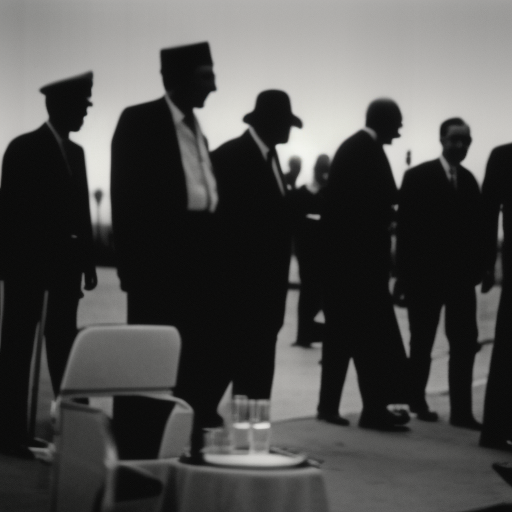Casablanca Conference: Allies Strategize in North Africa
The Casablanca Conference was a crucial meeting between Allied leaders during World War II, held in Casablanca, Morocco, from January 14 to 24, 1943. The conference brought together British Prime Minister Winston Churchill and U.S. President Franklin D. Roosevelt to discuss and plan the next phase of the war against the Axis powers.
Background
By early 1943, the Allies had achieved some significant victories in North Africa, with the British Eighth Army under General Bernard Montgomery successfully pushing back the Axis forces led by General Erwin Rommel. The Allies were now preparing to invade Sicily and planning their next moves in the war.
Objectives
The main objectives of the Casablanca Conference were to solidify the alliance between the United States and the United Kingdom, coordinate military strategy, and determine the future course of the war. The conference also aimed to address the issue of unconditional surrender by the Axis powers and discuss post-war plans.
Key Decisions
One of the most significant outcomes of the conference was the decision to pursue a policy of unconditional surrender by the Axis powers. This meant that the Allies would accept nothing less than the complete and total surrender of Germany, Italy, and Japan. The policy aimed to prevent a negotiated peace that could leave the Axis powers with any significant power or influence.
Another key decision made at the conference was the agreement to launch an invasion of Sicily, codenamed Operation Husky, in the coming months. The invasion was seen as a crucial step towards the liberation of Italy and the weakening of the Axis powers in Europe.
The conference also saw discussions on the future strategic bombing campaign against Germany. The leaders agreed to intensify the bombing raids and target German industrial centers, transportation networks, and oil facilities. This decision aimed to weaken Germany’s war machine and disrupt its ability to sustain its military operations.
Post-War Plans
While the primary focus of the conference was on military strategy, the leaders also discussed post-war plans. They affirmed their commitment to establishing a post-war international organization to maintain peace and prevent future conflicts. This commitment laid the groundwork for the creation of the United Nations after the war.
Impact
The Casablanca Conference had several significant impacts on the course of World War II. The decision to pursue unconditional surrender by the Axis powers set a clear and uncompromising goal for the Allies, ensuring that they would not settle for anything less than complete victory.
The agreement to invade Sicily marked a turning point in the war in Europe. The successful invasion of Sicily in July 1943 paved the way for the Allied invasion of Italy and the eventual collapse of Mussolini’s fascist regime.
The intensified strategic bombing campaign against Germany had a profound impact on the German war effort. The sustained bombing raids weakened German industry, disrupted supply lines, and eroded morale, contributing to the eventual defeat of Nazi Germany.
The commitment to establishing a post-war international organization demonstrated the Allies’ determination to prevent future conflicts and promote global cooperation. This commitment laid the foundation for the establishment of the United Nations, which has played a crucial role in maintaining peace and resolving international disputes since its formation.
In conclusion, the Casablanca Conference was a pivotal event in World War II, where Allied leaders strategized and made key decisions that shaped the course of the war. The conference solidified the alliance between the United States and the United Kingdom, set the goal of unconditional surrender by the Axis powers, planned the invasion of Sicily, intensified the strategic bombing campaign against Germany, and laid the groundwork for the establishment of the United Nations.












